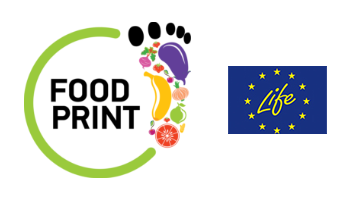4th research poll on food waste

The 4th food waste survey aimed to analyse people’s views on food waste reduction strategies. The survey was conducted online through Dias Group websites (Sigmalive, Sportime.com.cy, I love style, City.com.cy, Check In, Economy today, MyCyprusTravel.com) between 11/08/2021 and 17/08/2021. The sample for each question ranged from 922 to 1599 people, some of whom do not live in Cyprus. The survey introduced and questioned people’s willingness to adopt 4 different waste reduction strategies, with a 5-point scale for them to choose from (“very willing”, “quite willing”, “somewhat willing”, “not so much” and “not at all willing”).
Below is an analysis and description of the proposed strategies to reduce food waste:
The first proposed strategy was to sell good quality but deformed or ugly-looking fruits and vegetables at lower prices. The first question of the survey was to what extent people are willing to buy good quality but ugly fruits and vegetables at lower prices. Figure 1 below shows the results for each of the 5 options.

Figure 1. Poll question 1 results
The results are at the two extremes. The highest percentage of people (30.1%) answered “Not at all willing” and the next lowest percentage (27.3%) answered “Very willing”. Although the highest percentage of the sample is not willing to buy ugly fruits and vegetables at lower prices, overall 47.2% are very willing or quite willing to buy them. We could conclude from these responses that offering ugly fruits and vegetables at lower prices could be a successful tool to minimize food waste. Further analysis can be carried out to understand what would be an appropriate price for these products. Producers and retailers can work together to introduce these systems at lower prices. Retailers could also prioritise such actions by facilitating better promotion of such products in their stores. For example, by promoting the initiative in their existing advertising campaigns and by placing ugly fruit and vegetables in prominent positions in their stores as part of their corporate social responsibility strategies.
The second question and food waste reduction strategy refers to retailers’ waste. Specifically, the disposal of fruits and vegetables that are not so fresh or a little wilted. The survey question asked whether people are willing to buy not-so-fresh fruits and vegetables at significantly lower prices. Figure 2 below shows the results for each of the 5 options.

Figure 2. Poll question 2 results
As shown in Figure 2, responses skewed towards “not at all willing” with the highest percentage of 27.2%. Only 15.8% responded “very willing” in this case. Since the question specifies that these items will be sold at significantly lower prices, the results suggest that price may not be the most important factor in making the decision to purchase them. It appears that freshness is more important than price. It is possible that the results are linked to the culture and habits in Cyprus, as a country that grows fresh fruits and vegetables and consumers are used to buying fresh produce. We can conclude that this strategy will not have significant success in Cyprus. However, this is a practice that we have seen happening in many vegetable/fruit shops and in some smaller supermarkets, which means that there is a market for such products. Perhaps we are facing here one of those cases where self-declaration differs from actual behaviour. In theory, people would prioritise freshness, but would buy not-so-fresh fruit and vegetables when they are significantly discounted. But we can safely assume that bad fruits and vegetables would sell better than non-fresh ones when there are discounts.
The incentive to buy these items is mainly price. A common practice in Cypriot supermarkets is the sale of wilted tomatoes for use in the preparation of tomato sauce. This is an established habit of Cypriot consumers. Is it possible to promote this food waste reduction strategy through information campaigns? What other uses can these fruits and vegetables be put to? An example could be their use in the preparation of vegetable stock. Since price is not the incentive, perhaps more information and suggestions for use could make this strategy more successful than simply reducing the price.
The third question and waste reduction strategy concerned household food waste, specifically non-perishable food and expired items. The question was whether people are willing to participate in a donation program where they can give unwanted food for consumption to others in need, free of charge. Figure 3 below shows results for each of the 5 options.

Figure 3. Poll question 3 results
The results show that most respondents (38.6%) are “very willing” to participate in a food distribution program. Only 18% responded “not at all willing”. The results are encouraging as more people are “very willing” or “quite willing” (i.e. 63% of the sample) to participate in such a program than “not at all” and “not so much” (i.e. 25.7% of the sample). The results suggest that such programmes could be successful in Cyprus. Obviously, such programmes are limited or non-existent today because people do not have access to such networks. This is an interesting finding for the Life Foodprint project which has developed and is currently promoting a food exchange platform. Further analysis could show as to “how” people are willing to participate. Are people willing to go out of their way to participate in such a project? How easy and convenient does this program need to be to succeed and how long will it be successful?
The 4th question and waste reduction strategy refer to the idea of purchasing pre-packaged packages, with complete food ingredients for meal preparation and thus reducing food waste during cooking. The question was to what extent people are willing to buy pre-packaged food ingredients for meal preparation. Figure 4 below shows the results for each of the 5 options.

Figure 4. Poll question 4 results
The results show that most respondents (27%) are “not at all willing” to buy pre-packaged ingredients for a meal. Only 17% answered “very willing”. However, a high percentage of 24.3% responded “somewhat willing”. Since this is a new and untested concept for many in Cyprus, there may be other factors influencing the results such as uncertainty, existing habits, convenience, price, untested solution, never done it before, etc. It is not yet clear with these results whether this strategy will be successful in Cyprus; perhaps an information campaign explaining how this strategy supports food waste reduction might be the first step to adopting such a strategy.
This research can help municipalities, producers, retailers and other stakeholders to decide which solutions are best suited to minimise food waste in Cyprus. Overall, the results show that adopting strategies such as buying ugly fruits and vegetables at lower prices and participating in a food donation program can be successful. Buying not-so-fresh fruits and vegetables at significantly lower prices and buying pre-packaged ingredients for meal preparation proved to be less popular strategies.
The findings of the survey are very useful for the Life Foodprint project. They can support better planning of awareness campaigns and of course they can strengthen our work on the food exchange platform. In addition, there is useful information that can be used for practical action by fruit and vegetable producers and retailers. For example, a program to grow ugly fruit at discounted prices seems to be a feasible option, more favourable than selling at a discount not as fresh fruit and vegetables. However, discounting as non-fresh fruits and vegetables should also be enhanced and supported with recipes and options for using such produce, as it has already entered the retail chain and if left unwanted, will likely be wasted. So this is also a priority strategy, despite its lower attractiveness.
This research has given an indication of which strategies could be successful in reducing food waste in Cyprus. There are other food waste reduction strategies to be considered and usually the recipe for success is not one strategy, but several together.

